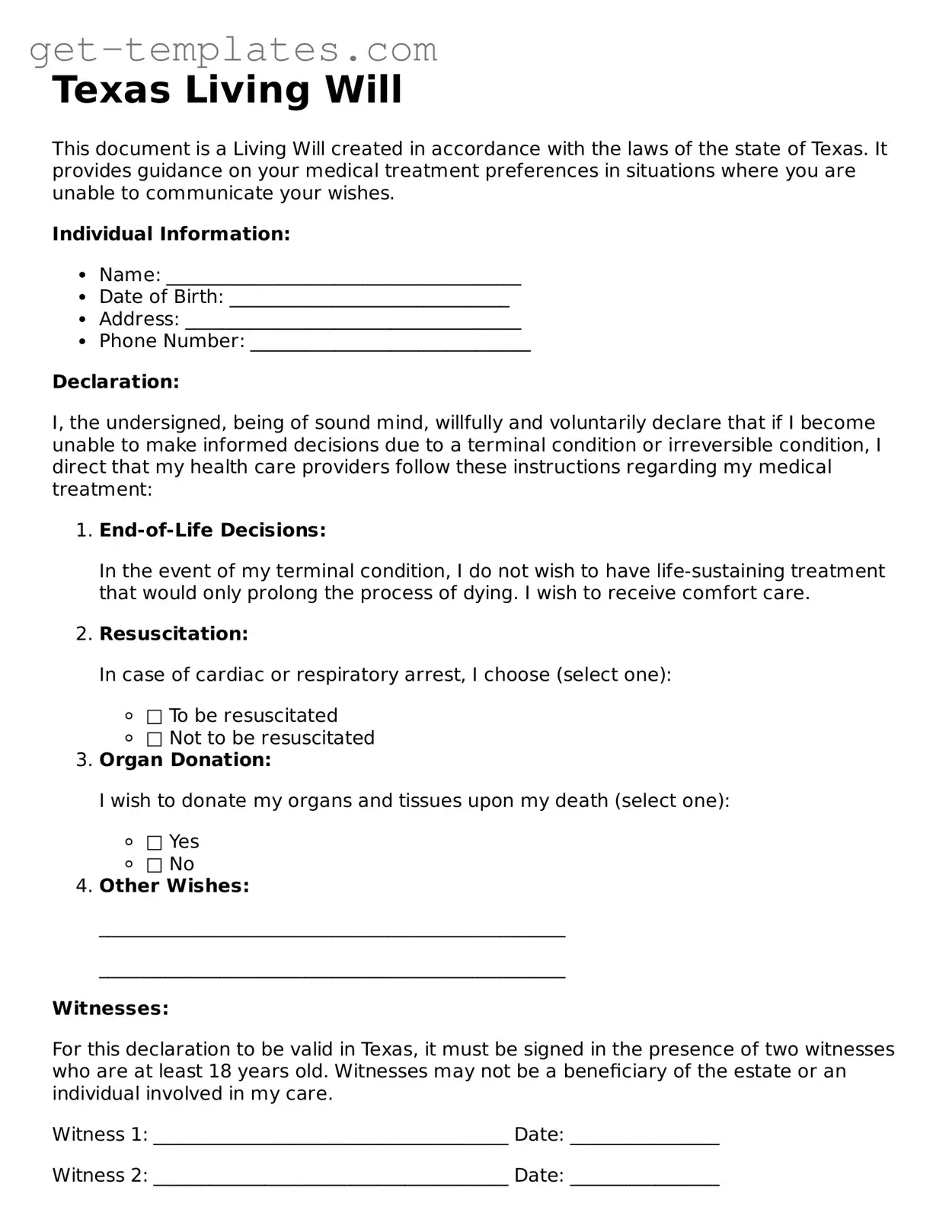Attorney-Approved Living Will Document for Texas
A Texas Living Will form is a legal document that allows individuals to express their wishes regarding medical treatment in the event they become unable to communicate their preferences. This form ensures that your healthcare choices are respected and followed, providing peace of mind for you and your loved ones. Understanding how to complete and utilize this document is crucial for anyone looking to take control of their healthcare decisions.
Get Document Online

Attorney-Approved Living Will Document for Texas
Get Document Online
You’re halfway through — finish the form
Finish Living Will online — edit, save, download made easy.
Get Document Online
or
⇓ PDF Form
